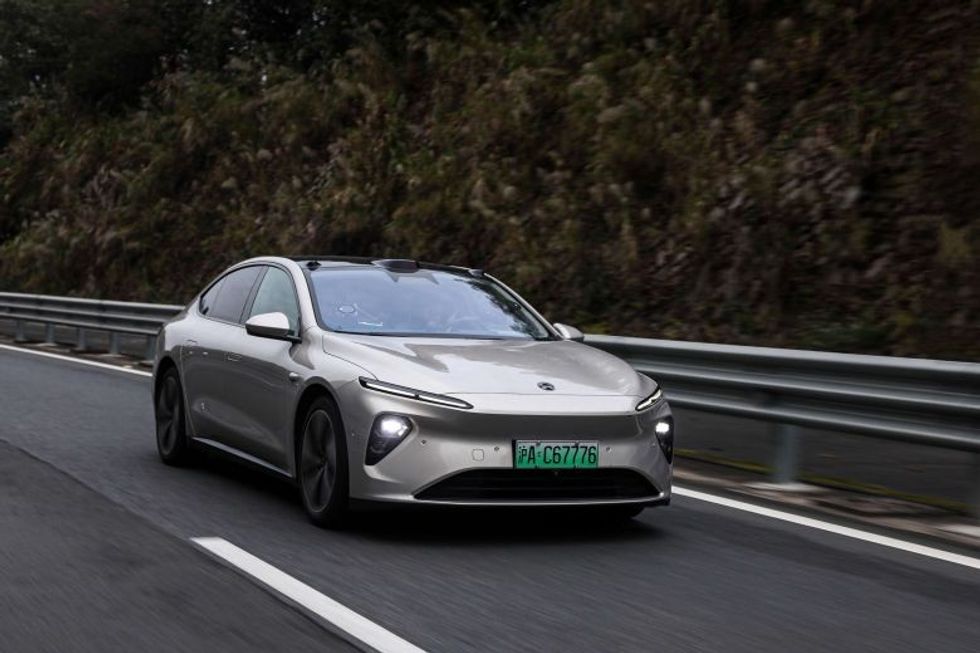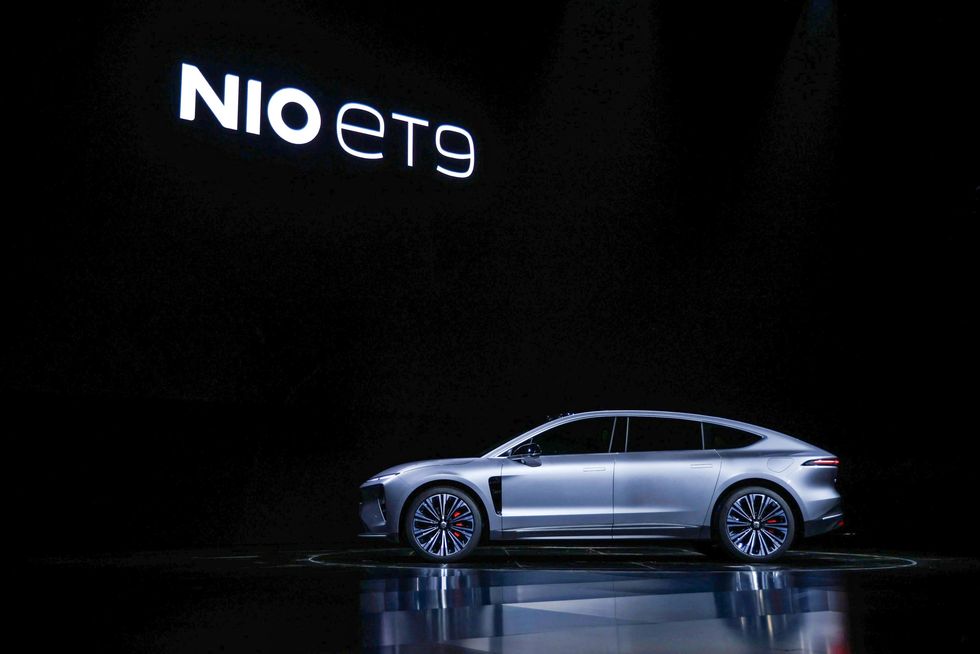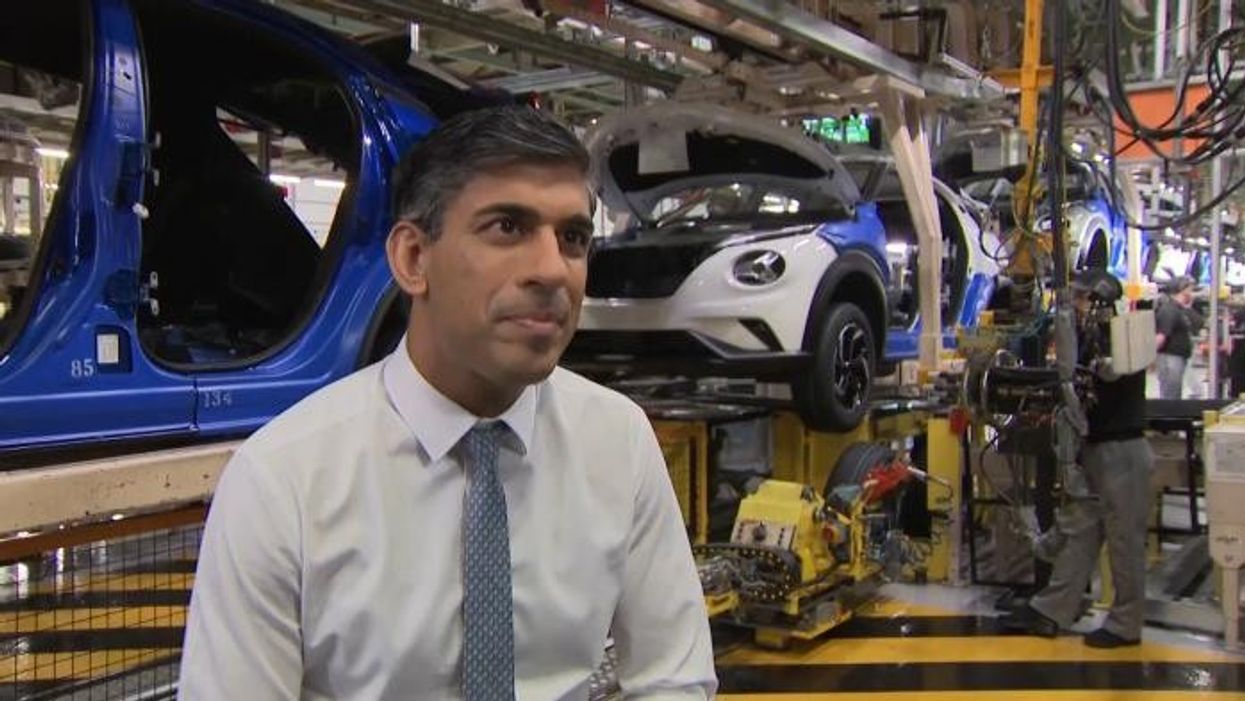The electric car only used 97 per cent of its battery when travelling more than 1,000km
Don't Miss
Most Read
Trending on GB News
A new electric vehicle has covered a distance of more than 1,000km on a single charge, with experts saying it will give drivers the confidence to make the switch to EVs.
Chinese brand Nio has demonstrated the impressive range of its electric cars by driving almost 650 miles on a single charge.
William Li, founder, chairman and CEO of Nio, used a Nio ET7 electric car to travel 648 miles – or 1,042km – in the vehicle.
The drive took over 14 hours, with Li claiming that the vehicle still had three per cent of battery left of the total 150kWh capacity.

The Nio ET7 electric car has a range of over 1,000km
NIO
During the drive, the ET7 travelled at an average speed of 52mph, achieving 4.7 miles per kilowatt hour.
The ambient temperature of the vehicle ranged from minus two degrees to minus 12 degrees and the cabin temperature was set at 20C.
Commenting on the impressive feat, William Li said it was a massive achievement for the company and would help to convince drivers that electric cars can compete with internal combustion engines.
He added: “The completion of this range test marks the range of smart EVs going beyond 1,000 kilometres, which will further promote the transformation of the automotive industry from the consumption of gasoline to electricity.
“This battery is currently the battery pack with the highest energy density in mass production in the world and has excellent safety performance.
“More importantly, all models on sale can be flexibly upgraded to 150kWh batteries through the Nio battery swap system.”
The 1,000km range is based on the China Light-Duty Vehicle Test Cycle (CLTC) and is generally considered to be more optimistic than the Worldwide Harmonised Light Vehicle Test Procedure (WLTP) which is used to calculate the range for most worldwide brands.
Nio claimed that the ET7 EV had achieved a total range of 1,145km (711 miles) in another test, although this was not broadcast.
The Shanghai-based manufacturer is expected to start mass production of its next-generation electric vehicle batteries in April 2024.
The brand added that it would hold off on its UK launch until it had developed the infrastructure to offer drivers the chance to swap their EV batteries, although there are expectations that the brand will have a presence in the UK by the end of next year.
Drivers in China will be able to benefit from Nio’s 900V ultra-fast charging with the ET9 EV, with the brand using a battery swap platform that takes three minutes.
The Japanese brand said there are expectations for EVs to have solid-state batteries on the market by 2027 or 2028.
The estimated range of 1,200km would be more than twice the range of Toyota’s current electric car range.
LATEST DEVELOPMENTS:
- Driving law changes introduced this year could see motorists hit with huge fines and licence issues
- Self-driving cars to be on Britain’s roads by 2026 as Transport Secretary hints at massive law changes
- Drivers slapped with 36,000 parking tickets each day with urgent calls for law changes to protect Britons

Nio recently unveiled the ET9 electric vehicle
NIO
Experts are hoping that solid-state batteries will arrive in the coming years, with existing problems relating to the production process.
With solid-state batteries, the layers of material inside the component must be stacked quickly and with high precision, potentially causing an issue with some motorists.









